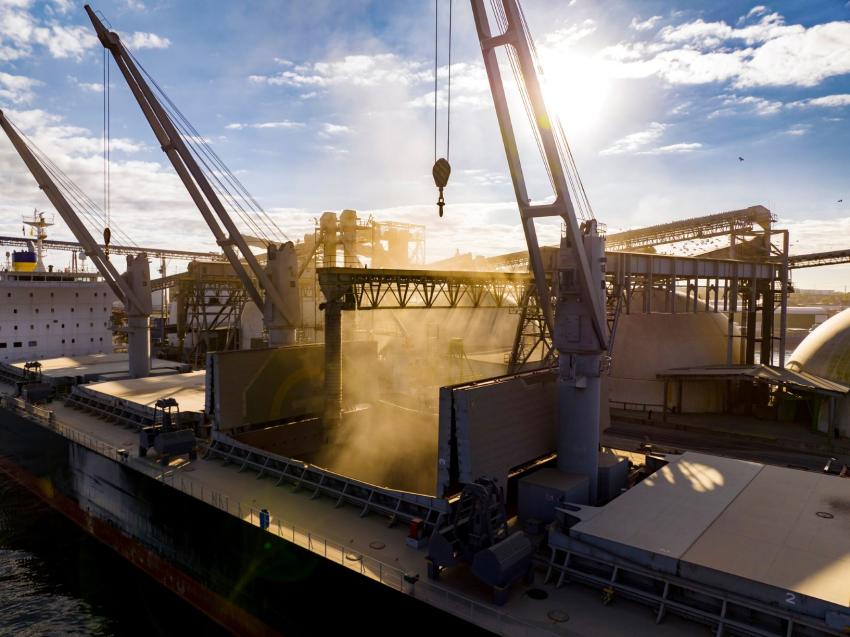With the start of this year's active grain transshipment season, Latvian-grown grain cargo is being received at the Port of Riga terminals. In August, after loading 250,000 tons of various agricultural cargo 31 vessels were serviced and dispatched from the port. By mid-September, another 30 ships had left the Port of Riga with 347,000 tons of local agricultural products. As usual, the majority of shipments consist of wheat, while Latvian rapeseed is also being actively exported. The main destinations are Spain, Germany, and African countries.
This season, 15 port terminals on both banks of the Daugava River are ready to receive and process grain at the Port of Riga. With the aim to reduce truck congestion on the access roads to the terminals, which often occurs during the harvest season, the Port of Riga has developed and implemented a digital solution that helps to manage the flow of cargo suppliers' vehicles to the port. Its operation is based on the digital application system introduced at the Port of Riga at the beginning of this year, providing submission and verification of documents in digital rather than paper format. The Freeport of Riga Authority therefore invites port companies and cargo suppliers to use the i.rop electronic application system for freight transport in order to receive digital access confirmation from the specific terminal before heading to the port, thus avoiding congestion and truck downtime while waiting in lines at the port.
The Freeport of Riga Authority cooperates with the Riga City Council, ensuring the integration of data into the port system with the relevant municipal services. This will enable the municipality to more effectively monitor the implementation of the decision allowing farmers to transport agricultural cargo to the port during the harvest period, even on those streets in Riga where freight traffic has been prohibited until now.
The Riga Port digital application system is the first step towards fully digital traffic flow management solutions in the city to avoid congestion in the future, ensure smooth freight traffic flows, and implement transport planning that will reduce the negative impact of freight transport on the urban environment and surrounding areas. At the same time, this is another step towards the introduction of electronic consignment notes (eCMR), which is planned to be implemented throughout Latvia in the coming years.
Regulating truck traffic flow in Riga during the busy grain season is becoming increasingly important, as the volume of agricultural cargo handled at the Port of Riga has grown significantly in recent years. Riga has become the largest port for agricultural exports in Latvia, handling half of Latvia's agricultural cargo in 2024 – 3.6 million tons.
Information for media

- [email protected], +371 670 308 53
- Freeport of Riga Authority
- 12 Kalpaka blvd, Riga, Latvia, LV-1010
 English
English























